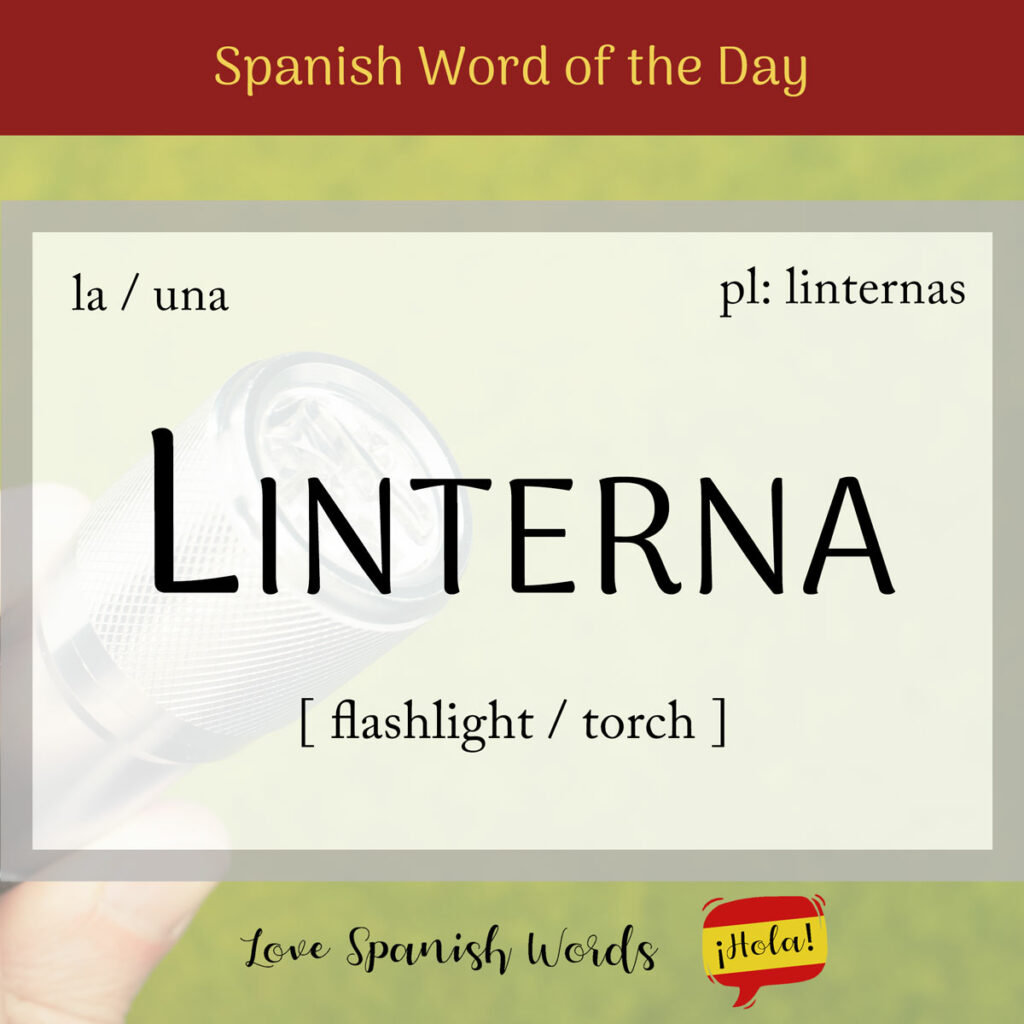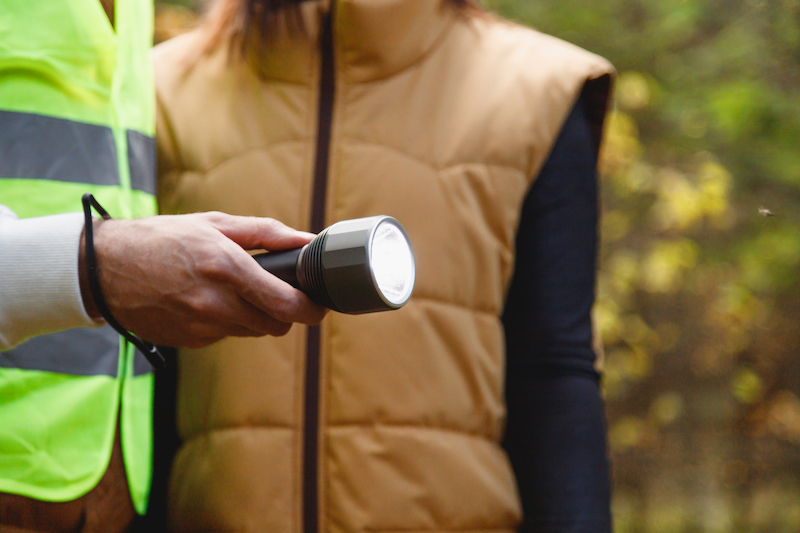A handy tool, linterna translates to flashlight in American English or torch in British English. Although it technically refers to a battery-powered, handheld device, many people also use linterna to describe the light on a mobile phone.
Latin American Pronunciation
European Pronunciation

The word derives from the Latin lantern which means to light or to illuminate. It is a feminine word and uses the following definite and indefinite articles:
- la linterna = the torch
- las linternas = the torches
- una linterna = a torch
- unas linternas = some torches
Voy a encender la linterna.
I am going to turn on the flashlight.

La linterna mágica
The magic lantern, linterna mágica, was an early image projector that used pictures—paintings, prints, or photographs—on transparent plates (usually made of glass), one or more lenses, and a light source.
Since many linternas use batteries, it’s also helpful to know that the Spanish word for batteries is pilas or baterías.
Se acabaron las pilas de la linterna.
The torch batteries ran out.
The light or beam that a torch projects is called haz or luz.
El haz de esta linterna es muy brillante.
The beam from this torch is very bright.

When it comes to types of linterna, there are several varieties, including:
- linterna a pilas = battery powered torch
- linterna a dinamo = wind up torch
- linterna de mano = hand torch
- linterna de llavero = key chain torch
- linterna de bolsillo = pocket torch
- linterna de cabeza = head torch
- linterna de acampar = camping torch (the one you can hang or put on a table, a kind of lamp)
- linterna de luz ultravioleta = ultraviolet light torch
Llevar una pequeña linterna de bolsillo puede llegar a ser útil.
Carrying a small pocket flashlight may come in handy.

In Mexico, the term linterna can also be as a slang word for eyes.
- El boxeador no pudo ver bien porque lo golpearon en la linterna = The boxer couldn’t see well because he got punched in the eye.

